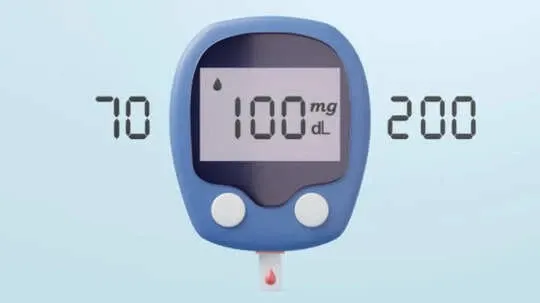Most people experience a drop in blood sugar when they do not eat or drink for several hours.
For some, their blood sugar still stays high for a long time. If your blood sugar levels get higher when you have not put anything in your mouth for 2 hours or more, it may be a signal to talk with your doctors about prediabetes, diabetes, or possibly another health issue that needs attention.
How does fasting affect blood sugar levels?
When you fast, your blood sugar and insulin levels begin to lower, prompting the pancreas to release glucagon - the hormone that signals your liver to break down stored sugar, glycogen, and, as fasting continues, your body shifts to burning fat and producing ketones - an efficient energy source for the brain and muscles.
However, doctors say not all fasting diets are structured the same way, and some may not be as beneficial for managing your blood sugar. A few intermittent fasting styles, like eating in an eight-hour window and fasting for 16 hours, can improve blood sugar management.
The time duration of the fast matters
Doctors say many benefits of blood sugar regulation also depend on how long you fast. Within the first eight hours, your blood sugar levels would decline as glycogen becomes tapped for energy. However, in the next 12-15 hours, fat burning picks up as ketones rise, which leads to appetite suppression.
However, as time goes by, cellular cleaning begins, leading to less inflammation and a spike in immunity. So, if you stretch fasting to 36 to 48 hours, growth hormone levels will surge, promoting muscle repair and recovery. And after more than 70 hours, stem cell regeneration happens, helping reset your immune system and protecting against many diseases.
What are the other benefits of fasting?
Apart from resetting your major health markers, fasting is also beneficial for other areas of your body.
Doctors mostly call to think of fasting as a spring deep clean, which ultimately makes you feel better and lighter while helping your body regenerate and recoup, boost weight loss, sharpen mental clarity, and regulate the much-needed immune function.
Other potential benefits of fasting include cell repair and metabolic reset.
Are there any risks of fasting?
For those with metabolic diseases like diabetes, there are a few risks associated with fasting, which include less energy, disrupted eating patterns, not being able to eat properly, and unpredictable blood sugar shifts. Also, according to experts, those who have a history of eating disorders should not indulge in fasting, along with those who are pregnant, physically active, and those who have a deficiency of nutrients, which is affecting their health.
Can you fast if you have diabetes?
Studies say a few fasting diets, only with the supervision of doctors, can help people manage symptoms of type 2 diabetes, as the process can help you manage weight loss and improve glycemic control.
However, if you have type 1 diabetes, always make sure to consult with a healthcare professional, as intermittent fasting can be complex due to insulin dependence. Those who are pre-diabetic should always pay close attention to how they feel while starting a new eating pattern.
